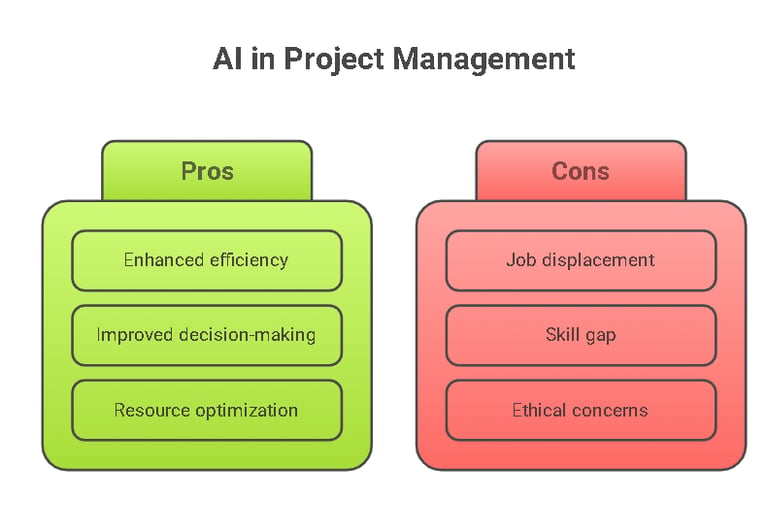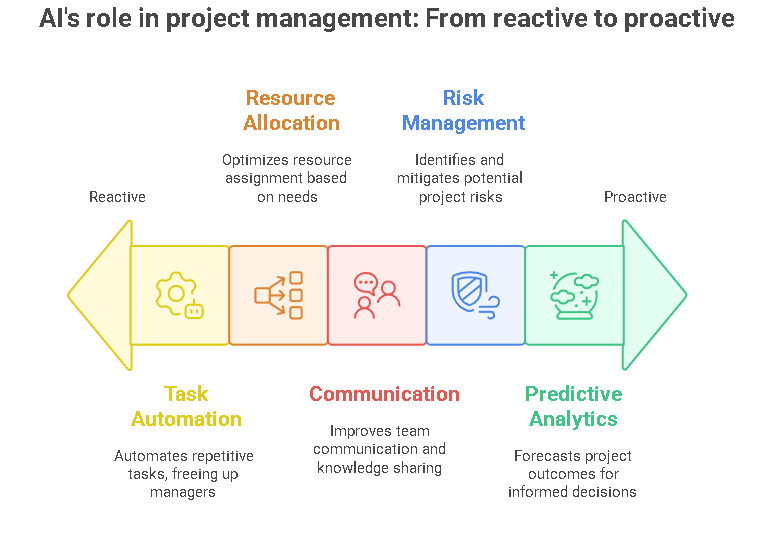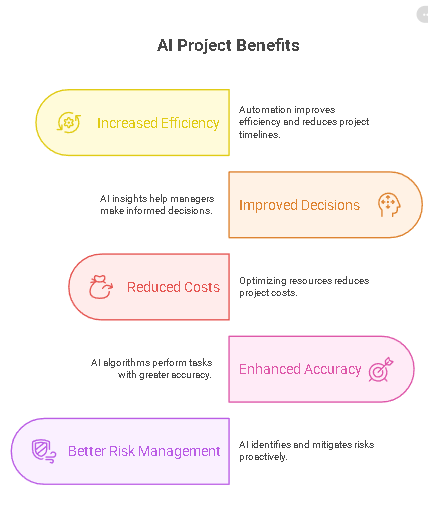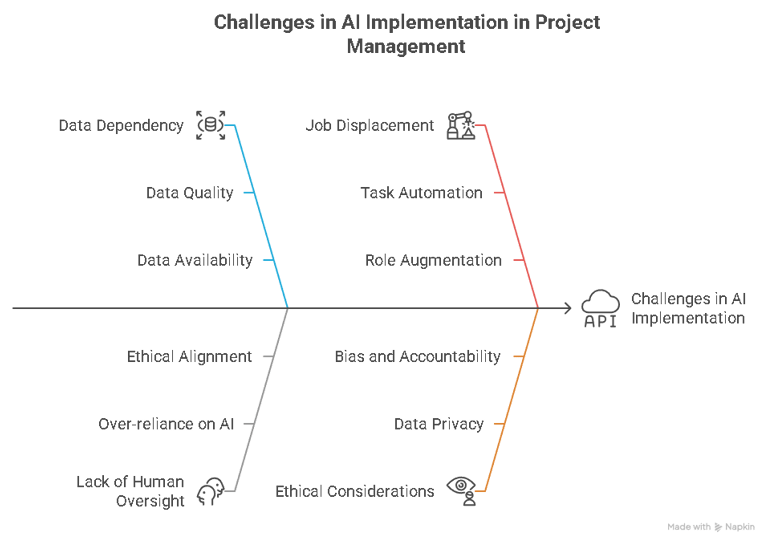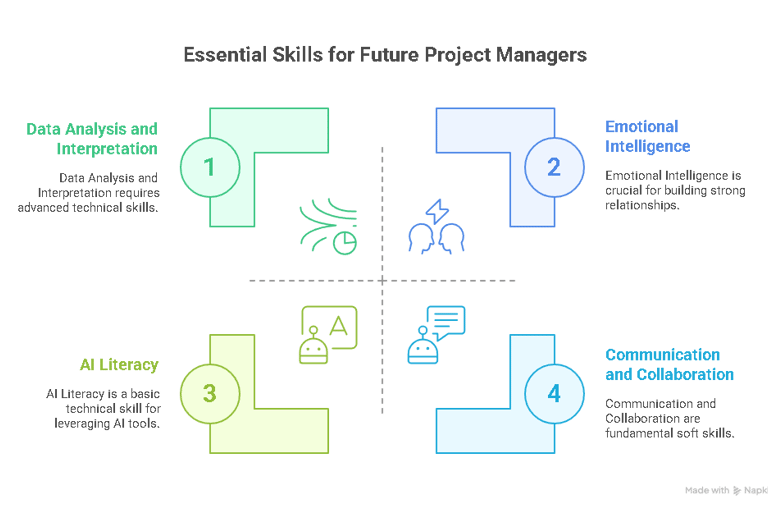The Impact of AI on Project Management Roles
The Impact of AI on Project Management Roles
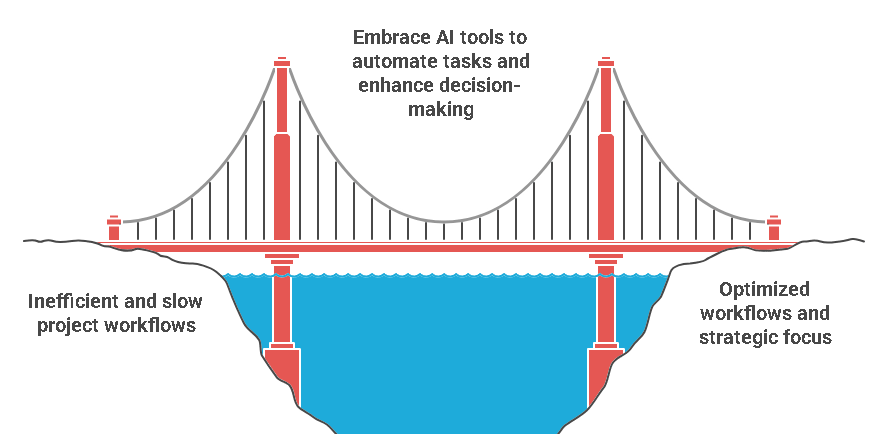

This document explores the evolving role of project managers in light of advancements in Artificial Intelligence (AI). It examines how AI is currently being used in project management, the potential benefits and challenges it presents, and how project managers can adapt to thrive in this changing landscape. The document aims to provide insights into the future of project management and the skills that will be most valued in the age of AI
Current Applications of AI in Project Management
AI is already making inroads into various aspects of project management, automating tasks and providing data-driven insights. Some key applications include:
Task Automation: AI can automate repetitive tasks such as scheduling meetings, generating reports, and tracking progress. This frees up project managers to focus on more strategic activities.
Risk Management: AI algorithms can analyze historical data and identify potential risks and issues before they escalate. This allows project managers to proactively mitigate these risks and keep projects on track.
Resource Allocation: AI can optimize resource allocation by analyzing project requirements, team skills, and availability. This ensures that the right resources are assigned to the right tasks at the right time.
Predictive Analytics: AI can use predictive analytics to forecast project timelines, costs, and outcomes. This helps project managers make more informed decisions and set realistic expectations.
Communication and Collaboration: AI-powered tools can improve communication and collaboration among team members by providing real-time updates, facilitating knowledge sharing, and resolving conflicts.
Potential Benefits of AI in Project Management
The integration of AI into project management offers several potential benefits:
Increased Efficiency: Automation of tasks and optimized resource allocation can significantly improve project efficiency and reduce project timelines.
Improved Decision-Making: AI-driven insights and predictive analytics can help project managers make more informed decisions and avoid costly mistakes.
Reduced Costs: By optimizing resource allocation and preventing risks, AI can help reduce project costs and improve profitability.
Enhanced Accuracy: AI algorithms can perform tasks with greater accuracy and consistency than humans, reducing errors and improving project quality.
Better Risk Management: AI's ability to identify and mitigate risks proactively can help prevent project failures and ensure successful outcomes.
Challenges and Concerns
While AI offers many benefits, it also presents some challenges and concerns:
Data Dependency: AI algorithms require large amounts of data to function effectively. The quality and availability of data can significantly impact the accuracy and reliability of AI-driven insights.
Lack of Human Oversight: Over-reliance on AI can lead to a lack of human oversight and critical thinking. Project managers must ensure that AI-driven decisions are aligned with project goals and ethical considerations.
Job Displacement: There are concerns that AI may automate some project management tasks, leading to job displacement for project managers. However, it is more likely that AI will augment, rather than replace, project managers.
Implementation Costs: Implementing AI solutions can be expensive, requiring significant investments in software, hardware, and training.
Ethical Considerations: The use of AI in project management raises ethical considerations, such as data privacy, bias, and accountability.
Adapting to the Age of AI: Skills for the Future Project Manager
To thrive in the age of AI, project managers need to develop new skills and adapt their roles. Some key skills for the future project manager include:
Data Analysis and Interpretation: Project managers need to be able to analyze and interpret data generated by AI algorithms to make informed decisions.
Critical Thinking and Problem-Solving: Project managers need to be able to think critically and solve complex problems that AI cannot address.
Communication and Collaboration: Project managers need to be able to communicate effectively with team members, stakeholders, and AI systems.
Change Management: Project managers need to be able to manage change effectively and help their teams adapt to new technologies and processes.
Emotional Intelligence: Project managers need to be able to understand and manage their own emotions and the emotions of others to build strong relationships and foster collaboration.
AI Literacy: Project managers need to have a basic understanding of AI concepts and technologies to effectively leverage AI tools and solutions.
Conclusion
AI is transforming the field of project management, offering significant opportunities to improve efficiency, reduce costs, and enhance decision-making. While there are challenges and concerns associated with AI, project managers who adapt to this changing landscape and develop the necessary skills will be well-positioned to thrive in the future. The role of the project manager is evolving from a task-oriented administrator to a strategic leader who can leverage AI to drive project success. By embracing AI and focusing on developing uniquely human skills, project managers can ensure their continued relevance and value in the age of AI.
